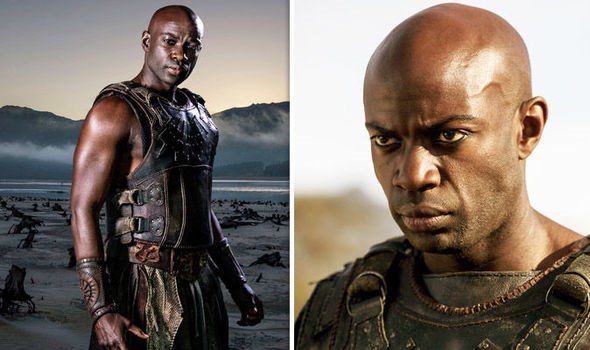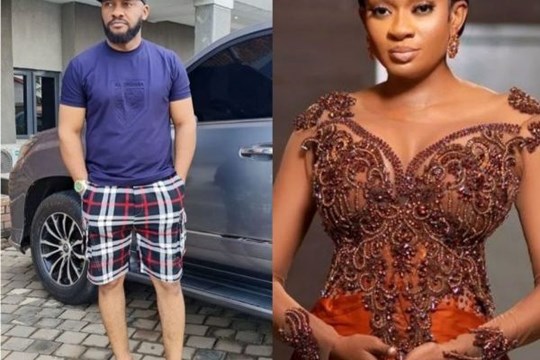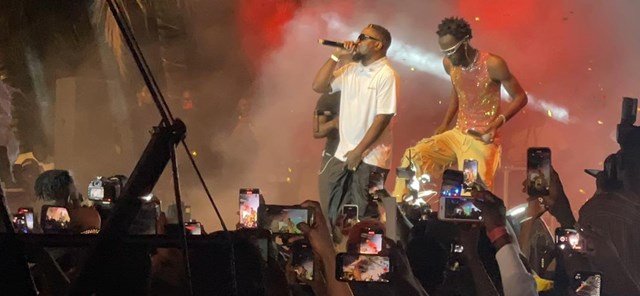David Kwaku Asamoah Gyasi is a British actor of Ghanaian descent who is popular for roles in BBC’s ‘Troy: Fall of a City’ and CW’s ‘Containment’.
His stock is fast-rising and he is getting noticed, critical mention and acclaim.
It was spring 2014. Actor David Gyasi had just landed his first lead role, playing special agent Marcus “Ash” Ashton in the action-packed BBC One drama series ‘The Interceptor’.
He had appeared in major dramas before, most notably playing Victor, a Jamaican scholarship student turned civil-rights lawyer in White Heat, Paula Milne’s BBC Two saga. Gyasi had also enjoyed smallish film roles in movies such as Cloud Atlas and The Dark Knight Rises. But with The Interceptor he was to be the star, the eyes of the story, and there was to be a lot of derring-do.
Alas, two weeks into the shoot, something terrible happened.
“I was filming a scene where I was running across a car park and I felt like someone had kicked me in the back of my leg,” Gyasi recalls. “I had ruptured my Achilles and I was unable to continue on the job.”
It’s the kind of thing that would get even the most stoical person down. But he was philosophical about the incident, helped, he says, by his Christian faith and the support of his wife (he met Emma, a dance teacher, while he was at sixth form) and their children.
“I am not sure I was fully gutted,” he says. “I was interested in why that happened. I had spent a long time working towards this moment in my career and I have a faith and I am a Christian and I wondered what the meaning of this was. It definitely made my prayer time rawer and more truthful – and painfully honest.”
The Interceptor, headed by his replacement, OT Fagbenle, bombed and lasted only one series. But getting that role proved something to him. A working-class actor brought up in suburban Hillingdon by British-Ghanaian parents could, as he puts it, “break the glass ceiling”.
“Diversity is multi-faceted, that it’s not just about how you look, but who you are.”
A black actor who is not box ticking in an ensemble cast or playing “the best friend” to make the white characters look good or “nice” – no, his character was driving The Interceptor. That is what a lead role means to him – proper diversity in action.
Gyasi’s composed attitude to his injury ultimately paid off. Exactly a year to the day it occurred, he started filming the lead role of Lex Carnahan in The CW drama Containment. The part had “the same level of responsibility” he’d been offered in The Interceptor. “And I was readier to take on that role and that responsibility,” he adds.
Since then, he has starred in the BBC epic Troy: Fall of a City as Achilles (that heel again!), and, in August, he made his debut in Amazon’s fantasy drama Carnival Row. He plays Agreus, a faun who becomes mysteriously wealthy in the drama’s beguiling world where humans and mythical creatures live side by side. He will be joining the cast of Peter Bowker’s The A Word later this year.
Gyasi is 39 years old and very settled. But his current success seems a far cry from his early life, which sounds (even if he doesn’t use the word) challenging. His father worked as a cab driver, his mother as a cook in office canteens. They both worked hard to provide opportunities for their six children.
Growing up in Hillingdon he experienced racism. There were some no-go areas. The moment when, as a 13-year-old, he saw the National Front newspaper, The Flag, being posted through his family’s door was particularly raw. He still doesn’t know why it was sent to their home.
But he considers himself fortunate to have had a number of role models growing up. People who, as he puts it, looked like him. These included John Barnes on the football field – young David was soccer mad.
And after catching the drama bug early in his adolescence (Gyasi rather casually agreed to appear in a secondary school play and was dazzled by the experience), he looked to actors for inspiration: people such as Eamonn Walker and Idris Elba. He first saw Elba in the Channel 5 soap Family Affairs.
“These actors looked a certain way as well. They looked clean cut, they looked sharp, they had authority and responsibility within the pieces they were doing.
“Idris was a good-looking guy doing so well and he had been given a bit of responsibility in a soap. That just landed in my head and I thought, ‘Ah, that’s nice to see’.
“That’s when I started to entertain the idea of being an actor for a 40-year career, or for however long it goes. I clocked people who spoke like me and looked like me, as opposed to Americans who spoke a bit differently.”
‘A working-class actor brought up in suburban Hillingdon by British-Ghanaian parents could, as he puts it, “break the glass ceiling”.’
The presence of black faces on TV as he was growing up continues to make him supportive of efforts to promote on-screen diversity. On the day we spoke there had been objections in some quarter of the internet to Halle Bailey (a black woman) voicing Disney’s new Little Mermaid. But Gyasi believes these views need to be understood before being confronted and challenged.
“It really makes me smile, it’s incredible… but you can’t really blame these people. Because it’s what we’ve shown them. We have told them this is what they look like, the beautiful people. And the hero usually has coiffed hair and looks like this and he comes along and saves the day.
“So we are in a process, saying, ‘There’s also this as well, the beautiful princess can look like this’. But I understand it, it’s to do with what’s gone before. When we started charging 5p for plastic carrier bags people were outraged, but it takes time.
“We now have that situation and the world has remained intact, it hasn’t imploded. I hope that comes across with heart and grace. I understand why people react that way, but I think you have to be optimistic. I have kids. I have to stay in that optimistic camp.”
Gyasi agrees that diversity is multi-faceted, that it’s not just about how you look, but who you are: it’s just as important to have people from ethnic minorities as it is to have more state-educated people writing and appearing in TV shows. The key question, he says, comes back to perspective – who is driving the story on screen and who is behind the endeavour? Which returns us to the moment he broke the glass ceiling in 2014.
“In the US, I see producers that look like me and are different from the white, middle-class producers you tend to see in the UK. What’s incredible when you begin to get diversity in the decision-making process is that you get to see other angles, different perspectives. And you get these scripts that are fuller and richer for it and more representative of the world in which we live.
“Overall, I think we sell ourselves short. If I leave my house now and do the things I have to do today I am going to meet a number of fascinating people with different stories and backgrounds.
“But if I say that today the only interesting person I spoke to is the middle-class gentleman I spoke to about his script, which I have, then I have sold myself so short. If I thought I should only take an interest in that one perspective, it’s incredibly narrow.”
But, above all, he would like one day to have a conversation where this subject isn’t brought up in interviews: “This conversation is interesting but I would like us all to get to a stage where I just talk about the work.
“I see myself as a global citizen. I’m going to go where that script lands. And I’ll do whatever is in my power to be on that job.
“But I don’t know where that may be. There are so many interesting things out there.”
Source: Entertainment Gh




 Excellent
Excellent









Leave a Comment